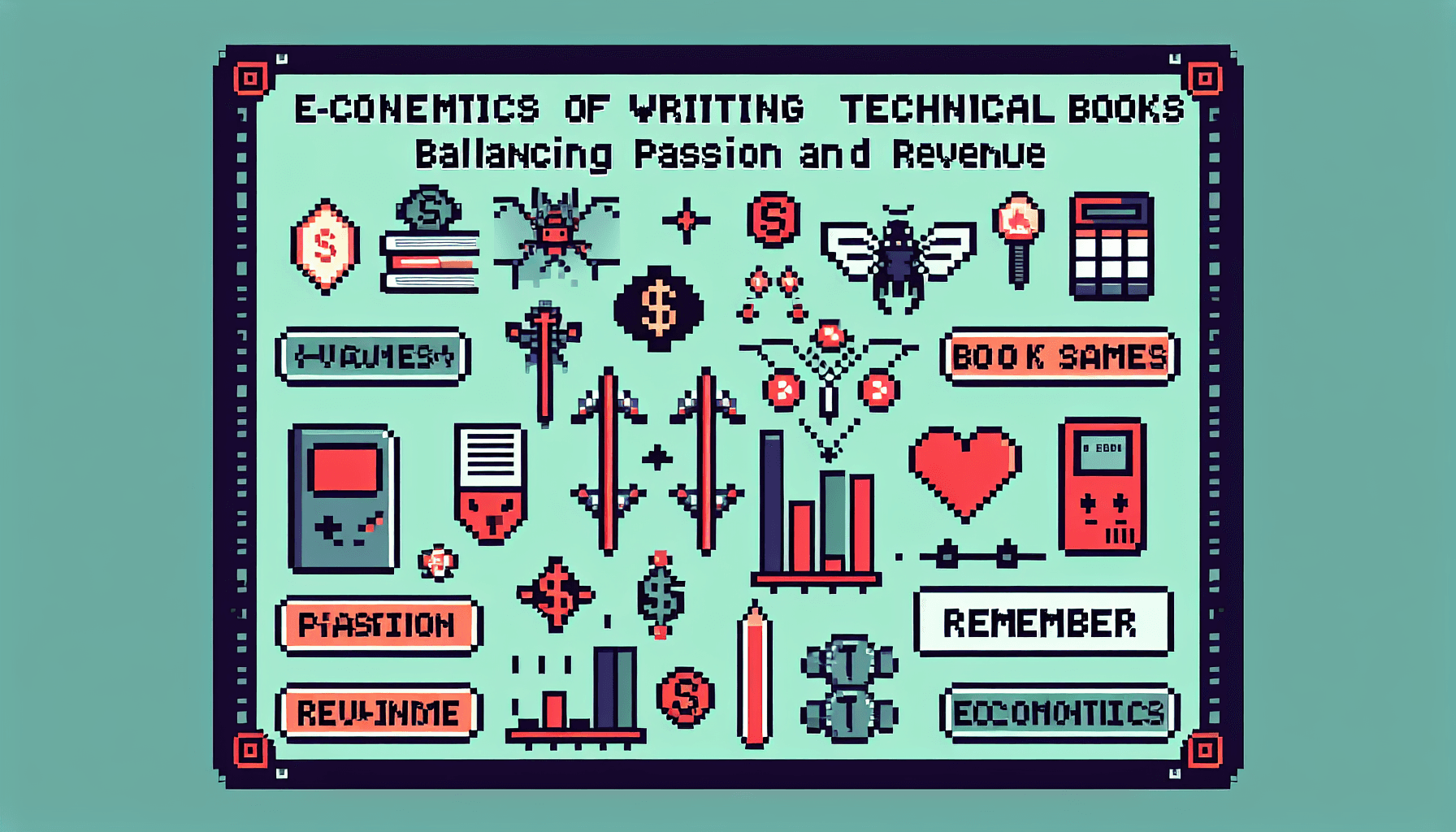Today in Edworking News we want to talk about The Economics of Writing Technical Books Yes, you can make money writing books. But never do it for that. Gregor Hohpe I help enterprises with their architecture strategy and cloud transformation journey by connecting the penthouse with the engine room. Ex-Google, Allianz, ThoughtWorks, Deloitte. Updated: May 24, 2024 Updated: Strategy
Recently, a longtime friend and fellow author pointed out that he earns about $1/h from being a series editor for a major publisher. Apparently, some authors were surprised that the series editor doesn’t work for free. Authors might be higher on the idealist spectrum when it comes to compensation, but there’s a healthy ground rule for technical authors, speakers, and series editors (see also this insightful Tweet).
 Rule #0: If someone else makes money in the arrangement, so should you
Rule #0: If someone else makes money in the arrangement, so should you
Architects prefer transparency. So, with money being mostly a whisper-whisper topic, I decided to shed some light on how much money you can earn from writing technical books. I’ll also discuss what publishing options you have and how they affect your payout.
 Writing Books for Money
Writing Books for Money
Before we even get into details, let me share the fundamental rule of writing technical books: Rule #1: Never write a technical book for the money. That doesn’t mean that you can’t make decent money from technical books. So, read on.
 Making Money
Making Money
Passive Income—Royalties are generally considered passive income meaning you are not actively working on generating that income at the time you receive it. The satisfaction of seeing book sales come in while (mostly) sitting back is undeniable. Some platforms like Leanpub even send you an e-mail for each sale—the happiest spam ever.
 Can you make 100k?
Can you make 100k?
Even though we should not write technical books for the money, as long as we don’t intend to give them away, we are keen to know how much money can be had. Conversion rates, meaning the percentage of people who see your book and then actually buy it, are key. A 2-5% conversion rate on a website is already very good.

 Reality Check
Reality Check
So, how many copies does a technical book sell? I heard from publishers that 10k copies sold is considered a success, and the publisher may ask you to write another one. According to this blog, 96% of books (mostly fiction) sell less than 5000 copies per year.
 Longevity
Longevity
Rule #2: You may make 100k from your book, but don’t expect that to happen in 1 year! Many high-selling books are "evergreens", some of which have been around for one or two decades. Longevity is a major factor for book revenue.
 Revenue Split—Your Slice of the Pie
Revenue Split—Your Slice of the Pie
The amount that you will make per book varies by the distribution channel. For instance, Gumroad pays you 90% minus the credit card fee. Leanpub provides a very fair royalty rate (including credit card charges). With Kindle eBooks, the royalty share drops drastically for books over $10. Traditional publishers typically pay around 15% of the net revenue.
 Making More Money
Making More Money
Selling books is not the only way to make money from books. Many authors use books as a branding tool to attract business and secure higher consulting rates. Webinars and online events can also be a lucrative way to capitalize on your book.
Pricing
Your royalty rate is only half the equation; the other half is the retail price. I price my books around $25-$30, about half of what you'd pay for a technical book from a brand-name publisher. A useful pricing strategy that I haven’t explored yet is digital extras: offering the reader a workbook, template, toolkit, or video for an extra payment.
 Reporting and Payout
Reporting and Payout
Virtually all channels have a hold period to account for returns or avoid small payments. Gumroad leads by paying you at the end of the week following the sale. Leanpub holds money until it’s sure there are no returns, and Amazon pays on the same schedule.

 Marketing, Advertising & Promotions
Marketing, Advertising & Promotions
Self-publishing comes with the onus of self-marketing. Platforms like Leanpub and Gumroad rely on you to bring traffic. Amazon search rankings and recommendations significantly impact sales. Traditional publishers can pay for listings or cross-link your book to other well-selling books.
 Getting Started
Getting Started
Naturally, before all this applies, you first need to write a book. The journey is significant but manageable one sale at a time.
 Remember these 3 key ideas for your startup:
Remember these 3 key ideas for your startup:
- Understand Passive Income: Royalties are a form of passive income and can provide significant value over time, complementing your primary income streams.
- Longevity Matters: Think about the shelf life of the topic you are writing about. Topics with enduring relevance can bring sustained revenue.
- Effective Marketing: Self-publishing requires self-marketing. Leverage your social media platforms, blogs, and events to maximize reach and sales.
For more details, see the original source.
Edworking is the best and smartest decision for SMEs and startups to be more productive. Edworking is a FREE superapp of productivity that includes all you need for work powered by AI in the same superapp, connecting Task Management, Docs, Chat, Videocall, and File Management. Save money today by not paying for Slack, Trello, Dropbox, Zoom, and Notion.






